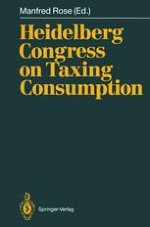A tax reform policy aiming at a growth of prosperity requires basic guidelines. These would have to serve as a standard evaluation model for the precise assessment of the current tax system and the development of tax reform proposals. For market economies the concept of a consumption-based tax system is gaining increasing importance, especially with respect to economic efficiency. An ideal concept for reforming direct taxes would be the requirement of aligning tax bases directly to consumed income, that is, to exempt saved and invested income from taxation. The present volume contains papers dealing with the pros and cons of such a consumption-based tax system and of taxing lifetime consumption. Papers presented in this volume come from leading international scientists who discuss the tax reform under theoretical, political, legal and administrative aspects.
